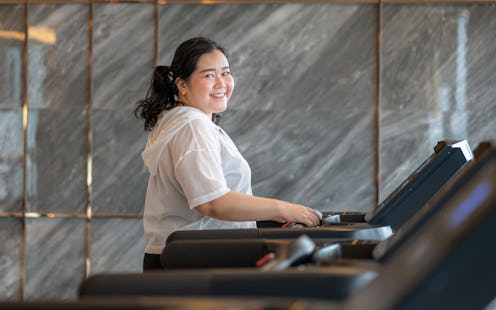Life
The 1 Trick You Need To Know For A Better Memory

Researchers have known for decades that exercise boosts memory, but according to a recent study, there might be a trick to getting the most out of your workout. Although it may be tempting to bring your books to the gym for efficiency's sake, researchers at the Donders Institute at the Radboud University Medical Center in the Netherlands have found that exercise only improves memory consolidation if you hit the gym several hours after you learn something.
According to Science Daily, 72 participants took a memory test for the study, which was published in the journal Current Biology. After the test, which asked participants to memorize object locations on a computer screen, they were divided into three groups: One group performed half an hour of interval training directly afterward, another did so four hours later, and the third performed no exercise at all. Two days later, all three groups took the test again, this time while inside an MRI machine measuring their brain activity.
Interestingly enough, those who exercised after a delay remembered the most information, even in comparison to the other exercise group. Furthermore, researchers also found that these participants showed more activity in the hippocampus, a part of the brain associated with learning and memory, when they answered questions correctly.
This is hardly the first study to suggest a link between exercise and memory. Previous research has shown that brief bursts of exercise are enough to improve short-term memory, and regular exercise may even increase the size of the hippocampus over time. There are many possible reasons for this link, ranging from exercise's positive effect on overall brain health to the presence of neurotransmitters like dopamine, which is implicated in memory consolidation and known to be boosted by exercise.
Researchers in the Netherlands study aren't sure why the delay affected memory, but further research might yield the answer. In the meantime, their results could turn out to be a useful study tactic for students — or maybe even for people who just can't keep up with where they put their keys.
Images: pipat wongsawang/Moment/Getty Images, Giphy